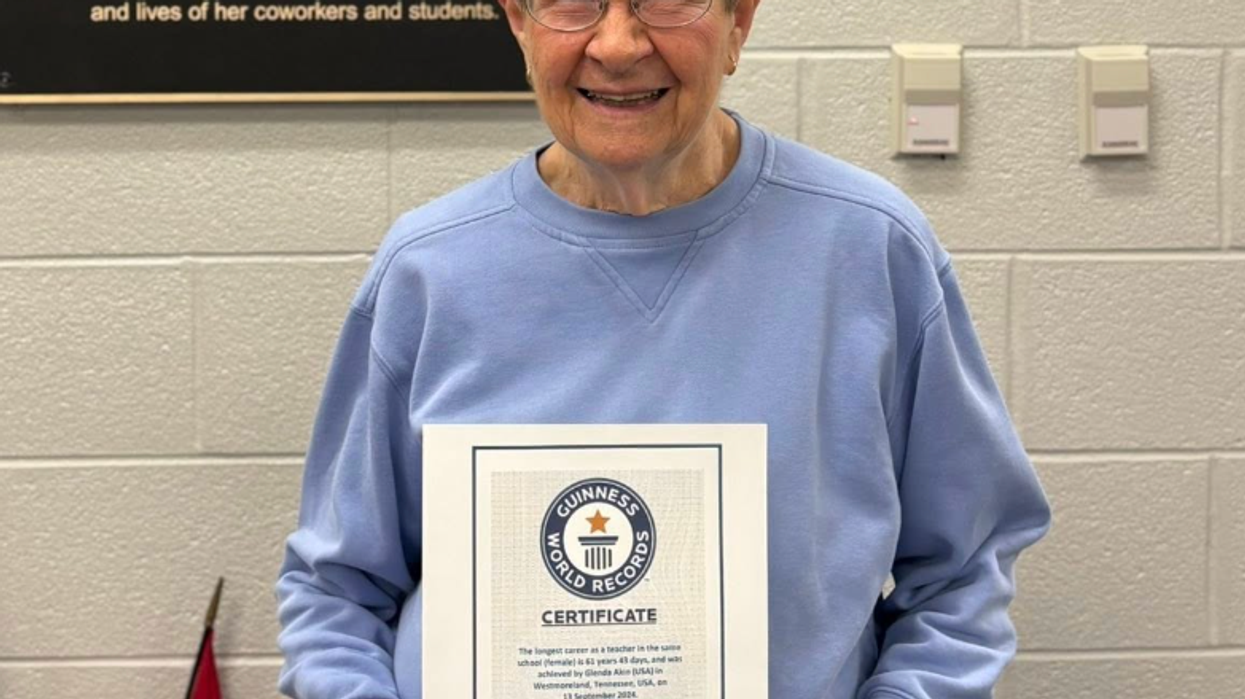There's a long-standing tradition in American politics that former presidents do not publicly criticize their predecessors. That's not to say it doesn't happen, but it's usually rare and they try not to make it too personal.
Barack Obama was relatively quiet about his successor Donald Trump until he took a veiled shot at him at a speech in South Africa in 2018. He railed against Trump for his "strongman politics," whereby "those in power seek to undermine every institution or norm that gives democracy meaning."
Most recently, in leaked audio from a conference call, Obama said Trump's response to COVID-19 is "absolute chaotic disaster."
However, Obama's broach of presidential decorum shouldn't reflect poorly on his character. After all, Trump's presidency is unlike any in U.S. history. The president has zero regard for presidential traditions or upholding the decency of the office.
Furthermore, Trump came to political power through the original sin of championing the "birther" conspiracy theory and incorrectly claiming Obama was born in Kenya. It was an underhanded racist attack and an attempt to undermine the legitimacy of his presidency.
Currently, Trump's accusing Obama of being complicit on a fake scandal dubbing it "Obamagate." According to NBC News Trump has "attacked Obama to an extent no other president has done to a predecessor."
It should come as no surprise that Trump has refused to hold an unveiling ceremony for Obama at the White House as long as he is in office. Sources who've spoken to NBC News say that Obama also has zero interest in attending such a ceremony with Trump.
"You've got a president who's talking about putting the previous one in legal jeopardy, to put it nicely. We have not seen a situation like that in history," said presidential historian Michael Beschloss. "It takes antipathy of a new president for a predecessor to a new level."
The ceremony goes back to 1978 when President Jimmy Carter presented Gerald Ford with his presidential painting. Carter had defeated Ford just two years earlier.
Most recently, Barack Obama presented George W. Bush with his painting in 2012. "We may have our differences politically," Obama said of Bush, "but the presidency transcends those differences."
"When you are wandering these halls as you wrestle with tough decisions," Bush joked, "you will now be able to gaze at this portrait and ask, what would George do?"
Let's hope that the Trump era is a historical anomaly and we can return to a time when our leaders can put the office of the president above petty squabbling.
"If the Presidents Club had a seal, around the ring would be three words: cooperation, competition, and consolation," Nancy Gibbs, author of "The Presidents Club," wrote. "On the one hand, the presidents have powerful motives — personal and patriotic — to help one another succeed and comfort one another when they fail. But at the same time, they all compete for history's blessing."
It seems that Trump's character flaws only allow him to care about one, which is ultimately competition. It's three years into his presidency and it appears that history's blessing will elude him, as well.


















 A woman relaxes with a book at homeCanva
A woman relaxes with a book at homeCanva An eviction notice is being attached to a doorCanva
An eviction notice is being attached to a doorCanva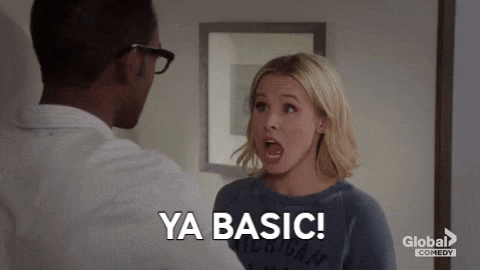 Gif of Kristen Bell saying 'Ya basic!' via
Gif of Kristen Bell saying 'Ya basic!' via 
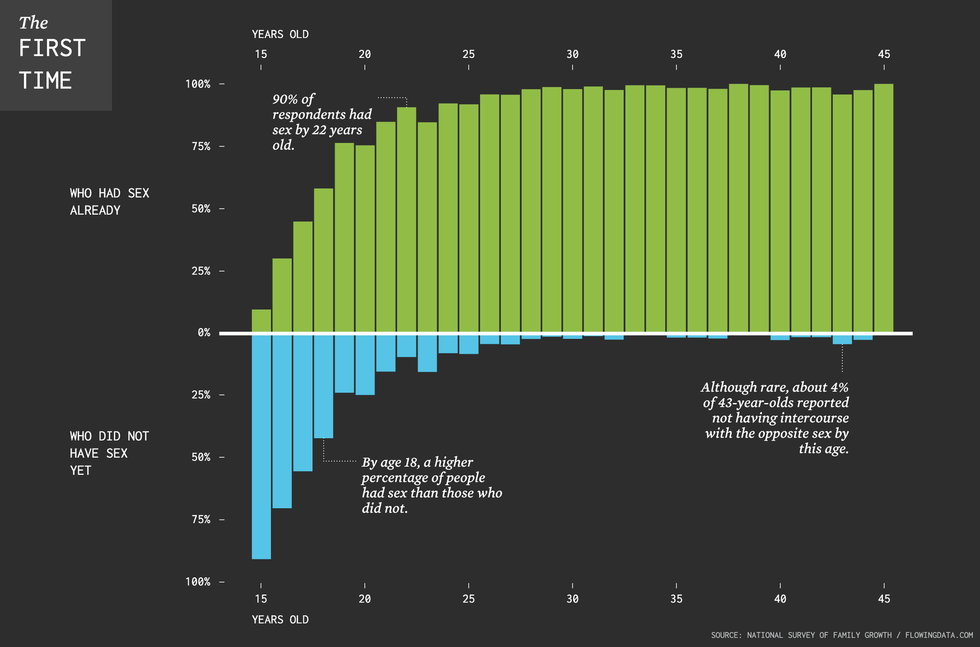 The chart illustrates that between ages 16 and 20, roughly half the population loses their virginity. By age 22, 90% of the population has had sex.
The chart illustrates that between ages 16 and 20, roughly half the population loses their virginity. By age 22, 90% of the population has had sex. A group of young people hold their phonesCanva
A group of young people hold their phonesCanva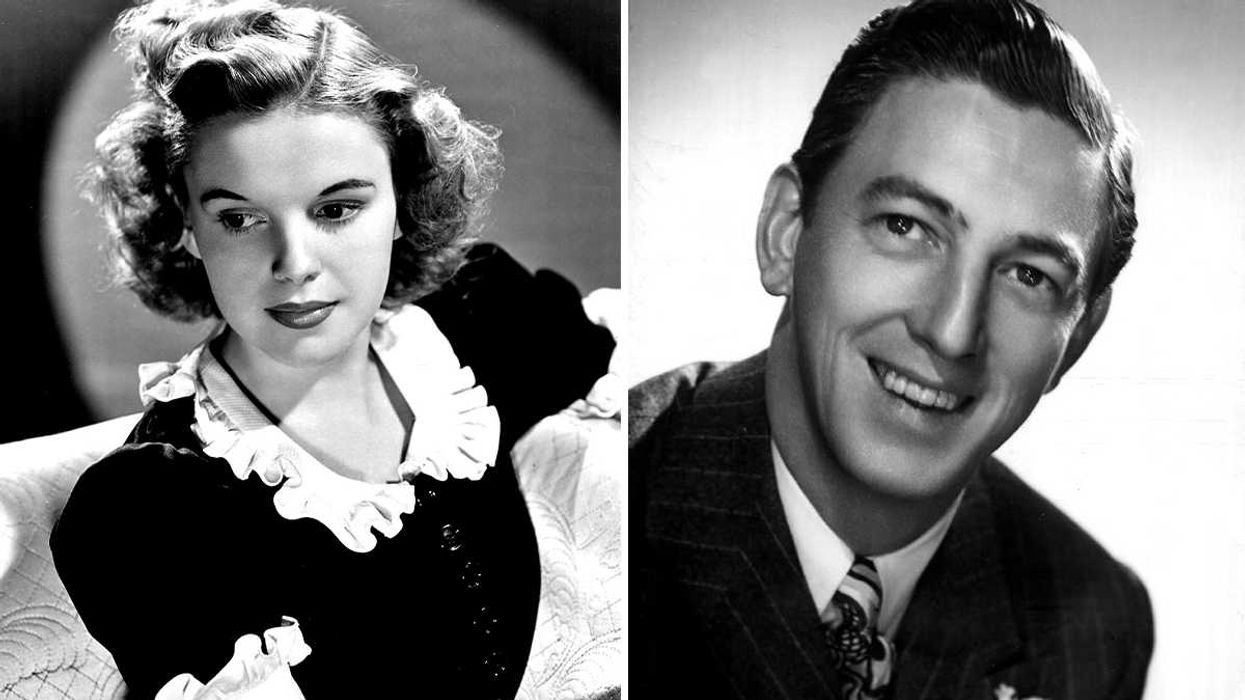
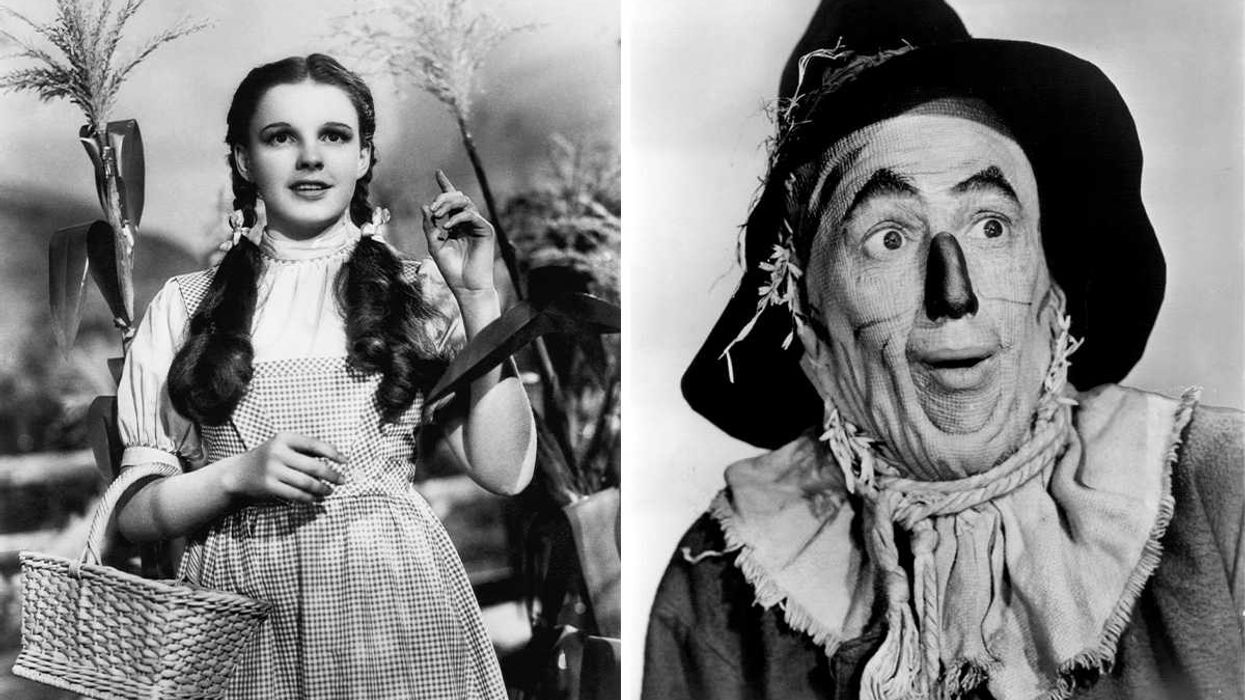 (LEFT) Judy Garland as Dorothy Gale and (RIGHT) Ray Bolger as Scarecrow from "The Wizard of OZ"CBS/
(LEFT) Judy Garland as Dorothy Gale and (RIGHT) Ray Bolger as Scarecrow from "The Wizard of OZ"CBS/ 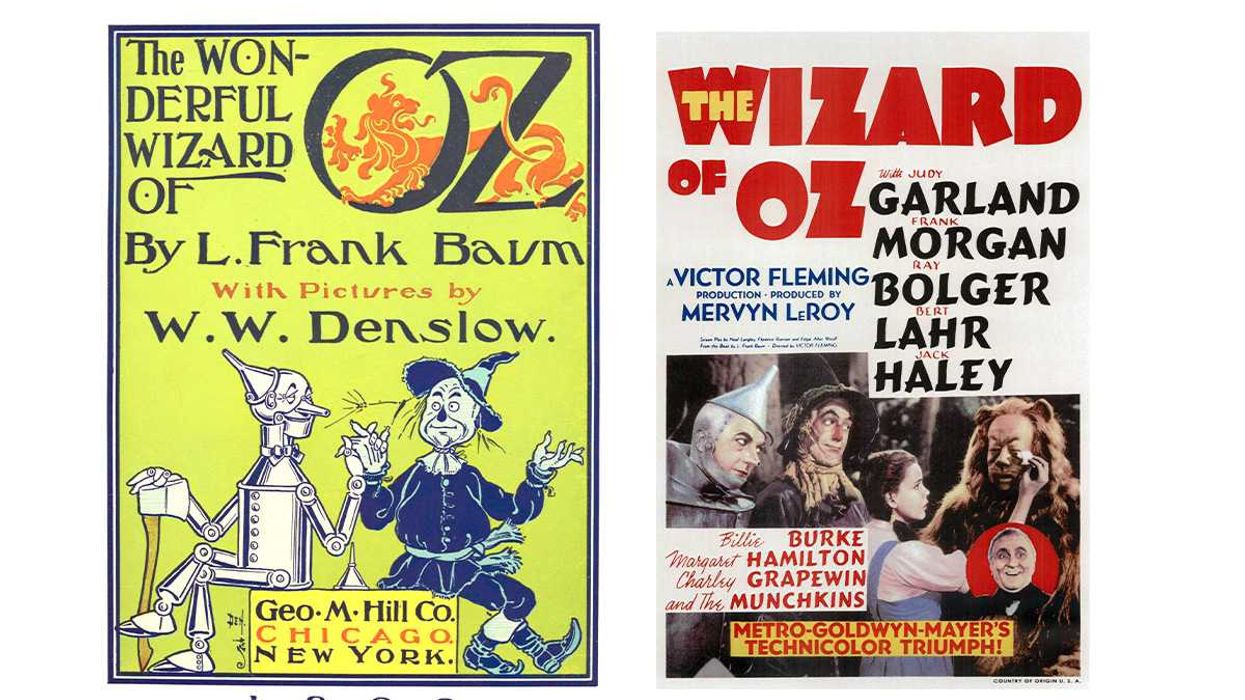 (LEFT) The Wonderful Wizard of Oz children's novel and (RIGHT) The Wizard of Oz movie poster.William Wallace Denslow/
(LEFT) The Wonderful Wizard of Oz children's novel and (RIGHT) The Wizard of Oz movie poster.William Wallace Denslow/ 
 A frustrated woman at a car dealershipCanva
A frustrated woman at a car dealershipCanva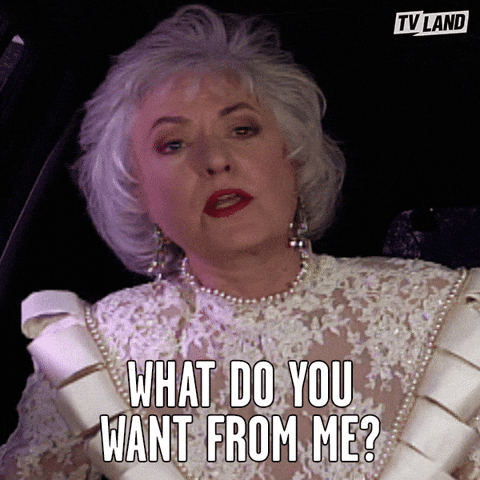 Bee Arthur gif asking "What do you want from me?" via
Bee Arthur gif asking "What do you want from me?" via 
 A couple on a lunch dateCanva
A couple on a lunch dateCanva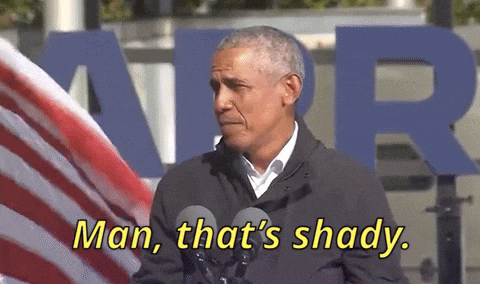 Gif of Obama saying "Man, that's shady" via
Gif of Obama saying "Man, that's shady" via 